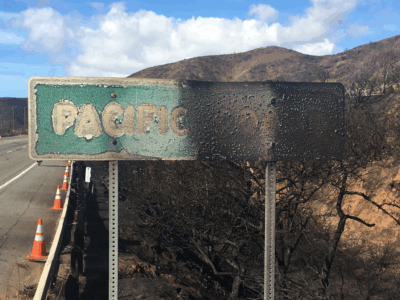Japan Removes Whaling from ICJ Jurisdiction
In a decision that surprised many, almost 18 months ago the International Court of Justice (ICJ) ruled that Japan’s whaling activities in the Southern Ocean were not justified under the International Convention for the Regulation of Whaling (ICRW). Japan’s Ministry of Foreign Affairs replied soon after that “as a state that respects the rule of law … and as a member of the global community, Japan will abide by the ruling of the court.” The ICJ decision and Japan’s response were trumpeted by anti-whaling parties as a major victory in their campaign. The ICJ had clearly found that Japan’s whaling around Antarctica violated the Convention and Japan had publicly agreed to comply with the Court’s order that it refrain from granting further permits. Given the twists and turns of the whaling controversy over the last thirty years, however, such a tidy conclusion has proven over-optimistic.
The legal provision in play is Article VIII of the ICRW, adopted in 1946. Article VIII provides that “any Contracting Government may grant to any of its nationals a special permit authorizing that national to kill, take and treat whales for purposes of scientific research subject to such restrictions as to number and subject to such other conditions as the Contracting Government thinks fit.” Whales hunted under this provision are exempt from the Convention’s other requirements. The ICJ found that Japan’s whaling program in the Southern Ocean was not designed for the purposes of scientific research (e.g., the number of whales and the use of lethal means to obtain tissue samples were not sufficiently related to the stated research objectives).
Late last year, Japan announced that it would re-commence whaling off Antarctica, targeting 3,998 minke whales over 12 years. In light of its earlier agreement to abide by the ICJ decision, Japan’s announcement presumably meant that its new whaling program, called Newrep-A, would be based on a more robust research justification. At the annual IWC meeting of the parties, the experts panel reviewing Newrep-A reported that, “With the information presented in the proposal, the panel was not able to determine whether lethal sampling is necessary to achieve the two major objectives” of calculating a sustainable population size and understanding better the Antarctic marine ecosystem. As a result, the report concluded that “the current proposal does not demonstrate the need for lethal sampling to achieve those objectives.”
Because of a recent development, unlike the earlier research program, Newrep-A will not be subject to challenge before the ICJ. On October 6th, Japan gave notice to the United Nations that it would no longer recognize the ICJ’s jurisdiction over “any dispute arising out of, concerning, or relating to research on, or conservation, management or exploitation of, living resources of the sea.” Instead, these conflicts will be subject to the dispute settlement provisions of the UN Convention on the Law of the Sea. The Ministry of Foreign Affairs press release stated:
“On 6 October 2015, Japan made a new declaration, considering that, as Japan is a State Party to the United Nations Convention on the Law of the Sea (UNCLOS) and continues to observe its obligations, it is more appropriate, as long as there is no special agreement, to apply dispute settlement procedure under the UNCLOS that establishes provisions regarding living resources of the sea as well as the involvement of experts from the scientific or technical perspective when an international dispute arises with respect to research on, or conservation, management or exploitation of, living resources of the sea.”
Under UNCLOS, if informal negotiation fails to produce a mutually acceptable settlement, a party may request formal dispute resolution in four different fora. In addition to the ICJ (which Japan no longer is subject to for living marine resources conflicts), there are three bodies created by UNCLOS — the International Tribunal for the Law of the Sea (ITLOS), an arbitral tribunal, and a special technical arbitral tribunal. The parties to the dispute may agree to choose any one of the fora. If they disagree over the appropriate forum, the dispute is submitted to compulsory arbitration as provided for in Annex VII.
It’s not clear where or how the next legal challenge will emerge. What is clear, however, is that the decision, whether in favor of Japan or the challenging country, will set the next battleground for this long-running and divisive conflict.







Reader Comments